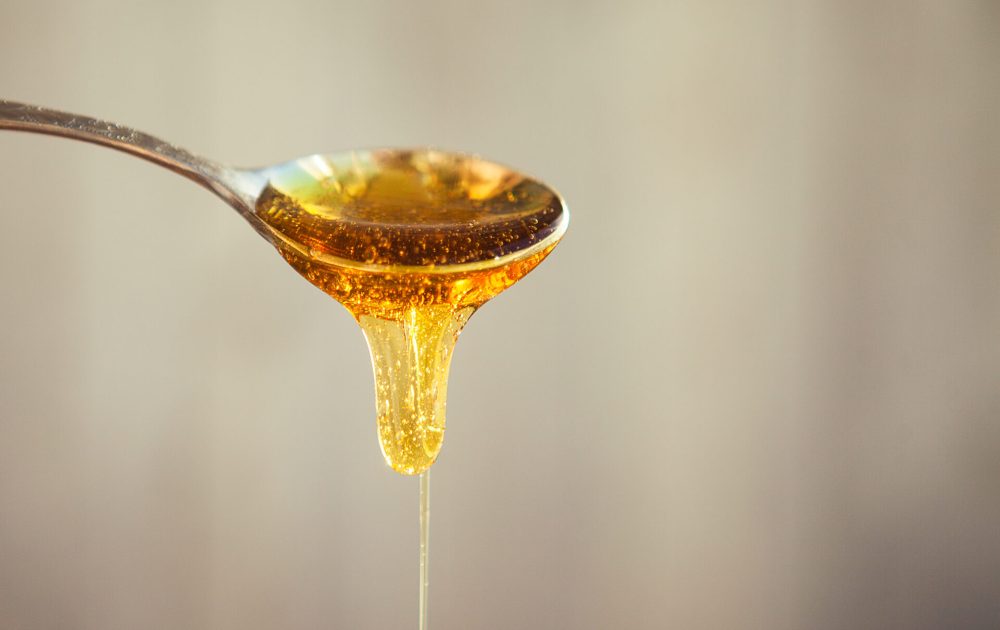Our test tells you which everyday chemicals you've recently come into contact with, and easy steps you can follow to reduce your exposure to them.
A spoonful of honey

There are around 20,000 species of bees in the world pollinate up to 35% of the world’s crop production. They play a vital role in the health of ecosystems and the security of the food chain. Pollen collected by bees makes around 1.8bn tonnes of honey across the world every year. But the widespread use of pesticides has contributed to declining bee and other insect populations.
This year’s #WorldBeeDay campaign aims to build awareness about the need to protect bees and other pollinators.
The health benefits of honey
There are lots of good reasons to take a spoonful of honey each day. It’s not only nourishing but also has healing effects. Honey is reported to have a wide range of health benefits including anti-inflammatory and antioxidant effects. It is mildly acidic and can prevent bacteria from growing.
Manuka honey has antimicrobial properties that help with wound healing, and when diluted it inhibits bacterial activity. It has even been shown to be effective in the treatment of some lung infections that are drug resistant.
But not all honeys are equal – some are blended from multiple countries of origin, and others have sugar syrup added. Always check the label to get the most benefits from your spoonful and buy locally produced honey if you can. Honey can only be certified as organic if the bees have foraged organically, which is nigh on impossible in UK farmed honey. Hives that are truly organic are usually within wild or mountainous areas, so much of the organic honey sold in the UK is imported from either Brazil or New Zealand.
Beeswax candles
The majority of candles are made using paraffin wax, a bi-product of petroleum. Candles are a big contributor to indoor air pollution, especially scented candles which produce VOCs and emit them into ambient air when lit as well as when unlit. Parafin based candles also raise Polycyclic aromatic hydrocarbons (PAH) levels indoors. These compounds are classed as highly carcinogenic and/or mutagenic, several are considered as probable and possible carcinogens to humans by the IARC.
Scent libraries used in candles can often be complex, and phthalates might be added to bind fragrances together and to extend shelf life. However, as candles burn, these particles are released into the air where they potentially could be inhaled or absorbed through the skin. This includes candles scented with essential oils or ‘natural’ scents.
Common health problems associated with scented candle exposure include headaches, shortness of breath and coughing. Paraffin wax (derived from petroleum) when burned, release VOCs such as benzene, dioxins, aldehydes and microparticles into the air.
Candles made from 100% beeswax are a healthy alternative to paraffin based candles – they produce one tenth of the soot created by paraffin candles.
What else do honey bees make?
Honey bees make a range of hive products which contribute to our wider health in often unseen ways, such as wound healing and anti-inflammatory medications. Beeswax is secreted by honey bees and used to construct the cells of a hive. It’s widely used in many cosmetic applications as a stable base for other ingredients, such as medical creams and salves, cosmetics, and soaps, and pharmaceuticals.
Beeswax is a chemical free alternative to a wide range of products that might contain endocrine disrupting chemicals such as parabens and phthalates. It’s used to waterproof leather, a lubricant for fly-fishing lines and hinges on doors/windows. It can also prevent rust building up on tools, improve non-stick quality for pans and irons, and as a seal jams/jellies instead of paraffin.
Further reading
Plant bee friendly garden plants
How to increase pollination in your garden.
Make your own beeswax products